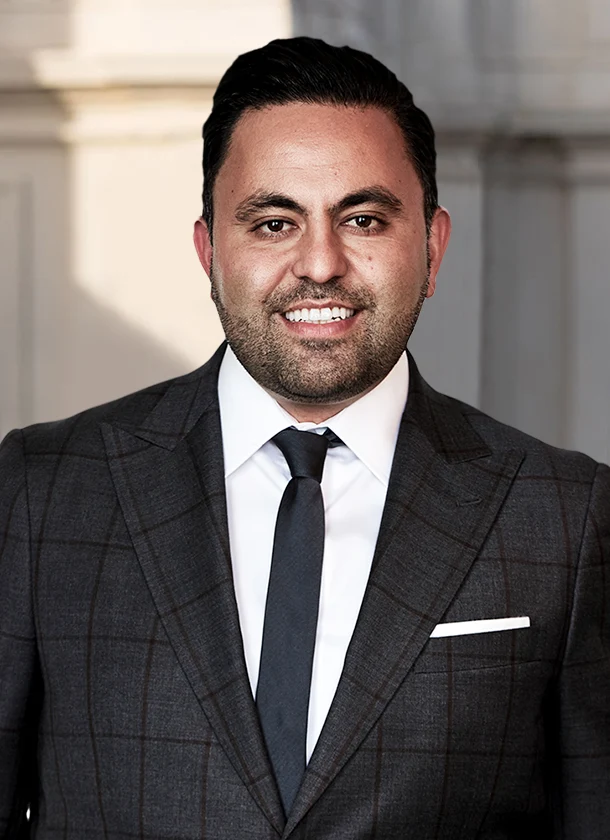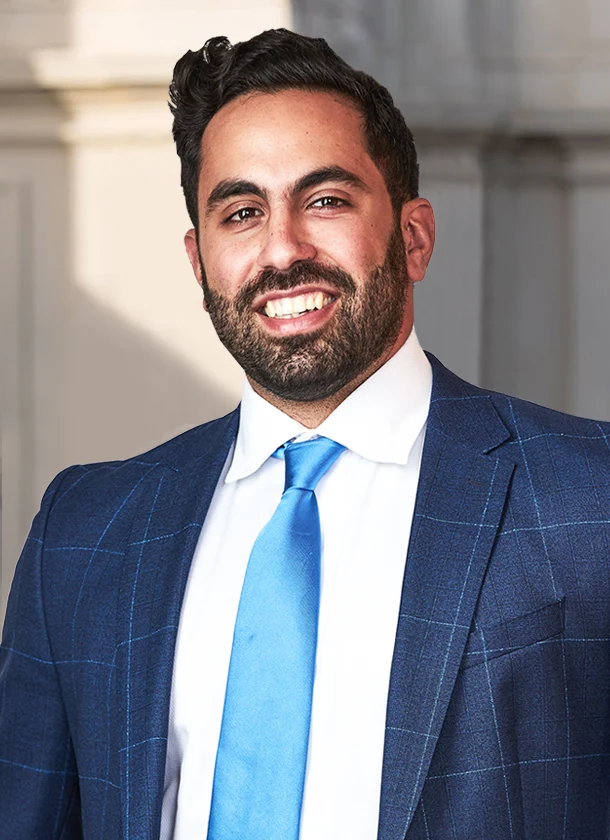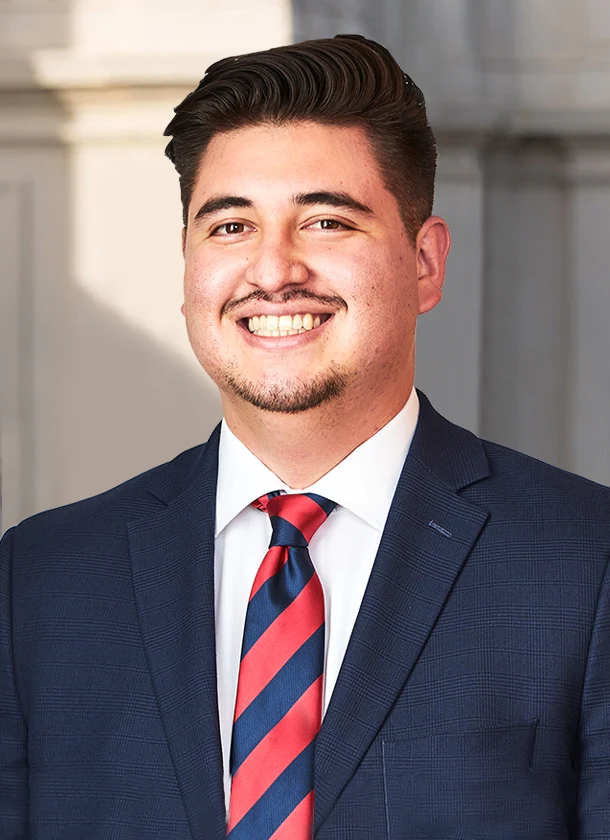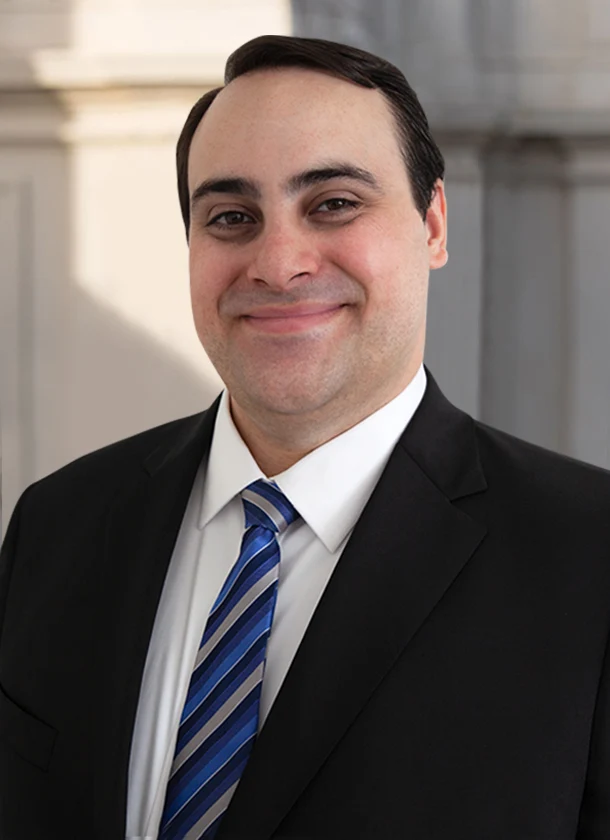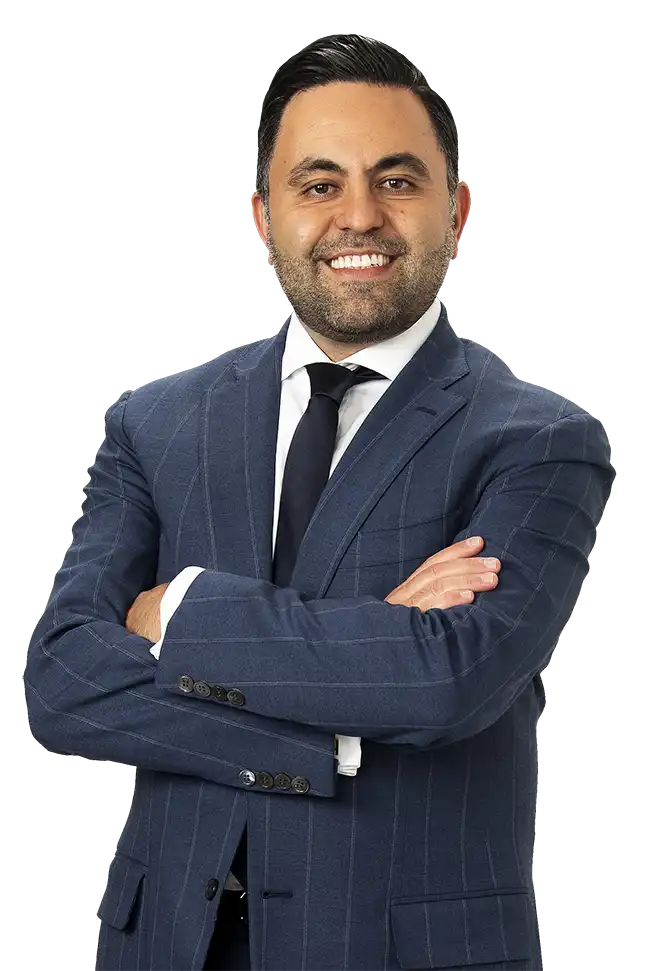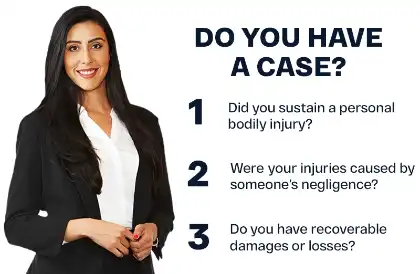TL;DR: Misconceptions about personal injury claims, such as needing severe injuries, quick settlements, or assuming full fault blocks compensation, can prevent valid cases. In California, a lawyer can clarify your rights, explain timelines, and help you make informed decisions.
Table of Contents
Injured due to someone else’s negligence? Perhaps a defective product caused a burn that required hospitalization. Maybe a dog bite left you with stitches and a fear of canines. If any of these happened to you, you might have grounds to file a personal injury claim.
A personal injury claim allows you to seek financial compensation for losses incurred in an accident caused by negligence. However, the process of filing and pursuing an injury claim is often misunderstood.
Unfounded misconceptions and beliefs may potentially prevent injured victims from seeking the compensation they may be entitled to. By separating fact from fiction, you can make informed decisions about your situation and take control of your recovery.
Myths About Personal Injury Claims
From cost-related concerns to settlement timelines, misconceptions might deter people from pursuing a legitimate personal injury case. Here are some of the common myths about claims and lawsuits that accident victims should know about:
It Takes A Long Time For An Injury Lawsuit To Be Resolved
One widespread misconception revolves around the belief that personal injury cases drag on for years before a resolution is reached. The truth is that the timeline for resolving injury claims depends on numerous factors. Though some complicated cases do take longer, others could be resolved within a few months.
Here are some examples of the factors that can influence the timeline of an injury claim:
- Severity of Injuries — Minor injuries requiring limited treatment are generally resolved faster than severe or long-term medical conditions.
- Liability Disputes — A clear-cut accident with undisputed fault typically moves through the process more quickly than in situations where determining fault is complicated or contested by the involved parties.
- Insurance Coverage — The at-fault party’s insurance coverage limits and the process of negotiation can impact the settlement timeline.
- Medical Records — Incomplete or delayed medical records can slow down the process, as they’re needed to establish the nature and extent of the injuries.
- Witness Availability and Cooperation — Obtaining witness statements and securing their cooperation for potential depositions can add time to the claim.
- Need for Expert Opinions — If outside experts, like doctors or accident reconstructionists, need to assess your injuries or provide expert opinions, the timeline might be extended to accommodate their involvement.
Your Insurance Company Will Fully Compensate Your Injury
After an accident, many assume the insurance company will cover all expenses. However, this expectation often doesn’t match the reality of insurance policies and coverage limits.
Generally, you can only pursue a compensation amount that falls within the limits of an at-fault party’s policy limits. To assess the viability of your claim and draft a settlement offer, insurance companies are also likely to conduct their own investigations into your accident. Since these may be done early after an accident, they may be working with limited information.
As a result, you might receive an initial offer that does not fully reflect the extent of your losses. An experienced personal injury lawyer can help you decide whether to accept or counter it. If you have a valid claim and opt for the latter, we can assist with settlement negotiations.
The Other Party Will Have To Pay Out-of-Pocket Damages
Another common misconception surrounding personal injury claims is that the person responsible for a victim’s injuries will directly pay any awarded compensation. While they may ultimately be found to be liable, in most cases, their insurance company typically covers the costs.
The reason insurance exists is precisely for situations like these. By paying premiums, individuals and businesses transfer the financial risk of accidents to the insurance company. When a claim is filed against an insured party, the insurance company steps in to handle the legal process and negotiations. This means you typically won’t need to pursue the at-fault party directly for compensation.
If You Only Have Mild Injuries, You Do Not Need An Attorney
While severe or catastrophic injuries like third-degree burns or spinal cord damage certainly justify a claim in many situations, the reality is that even seemingly minor injuries can also qualify. The key to having a valid personal injury case lies in proving negligence caused your injuries.
If you can provide evidence that another’s careless actions led to an accident, you could potentially file a claim for even less serious injuries. You can use the likes of medical bills and the impact the injury has on your life to prove that the accident directly resulted in your losses.
For instance, you had a slip-and-fall accident at a grocery store because staff neglected to clean up a spill or put up a warning sign. You sustain a sprained ankle that requires X-rays, a walking boot (an orthopedic device for treating sprains, fractures, and tendon or ligament tears), and physical therapy sessions. In this scenario, you could file a claim against the store’s insurance to pursue compensation for these losses.
The impact of an injury may also go beyond the physical. Even if your injury doesn’t require extensive medical intervention, it might cause pain and suffering that interferes with your ability to enjoy the activities you once did. Lost wages due to missed workdays because of the injury can also be part of a personal injury claim. Mental health issues such as post-traumatic stress disorder (PTSD), depression, or anxiety due to the accident can also be sought in a claim.
Consulting with a personal injury lawyer can help you assess your specific situation and whether negligence played a role in your accident. They may find that you can pursue a claim, even for a seemingly minor injury.
You Can’t File A Claim If You Didn’t Go To The Doctor Right Away
Seeking medical attention after an accident is definitely important. Not only does it protect your health and well-being, but it also creates a crucial paper trail for your personal injury claim. Medical records establish a clear timeline of events, documenting the injuries sustained and linking them directly to the accident.
However, there are situations where the severity of the injury might not be readily apparent. For example, whiplash, internal bleeding, or traumatic brain injuries can manifest symptoms hours or even days after the accident. Additionally, in the immediate aftermath of a traumatic event, shock can mask pain or hinder clear thinking, leading to a delay in seeking medical help.
While prompt medical care is advisable, a delay in seeing a doctor doesn’t necessarily disqualify you from filing a claim. However, it could make things more challenging. Here’s why:
- The Defense Can Argue a Pre-Existing Condition — If you have a documented history of a similar medical issue, it may be argued that the current injury existed before the accident. Timely medical records can help establish a clear connection between the accident and your current health problems.
- Weakened Credibility — A significant delay in seeking medical attention can raise questions about the legitimacy of your claim. The longer the gap between the accident and the doctor’s visit, the more room there is for doubt about the cause of your injuries.
An experienced personal injury attorney can assess your situation and discuss the courses of action available to you. They can help explain the potential impact of the delay and strategize to mitigate its effect on your claim.
You Can’t File A Claim If The Accident Was Partially Your Fault
One common misconception that deters a lot of people from filing a claim is the belief that any fault on their part automatically disqualifies them from pursuing compensation. This isn’t true, as California follows a pure comparative negligence system. Under this system, an injured party can seek damages even if they are found to be partially at fault for the accident.
For example, you got into a bicycle accident where you (the cyclist) and a car driver collided at an intersection. The court determined you were 30% at fault for not properly signaling a lane change, while the driver was 70% at fault for speeding and failing to yield. If your total damages amount to $100,000, pure comparative negligence allows you to seek 70% of that amount, which is $70,000.
Personal Injury Claims Are Only For Car Accidents
While car accidents are a frequent source of claims, personal injuries can occur in many different situations. Here are some examples:
- Dog Bites — If you’re out for a walk and get attacked by a dog, you might have a valid claim against the dog owner. Each year, California records more dog bite claims than any other state. In 2022, it topped the list with over 11% of all reported incidents.
- Workplace Accidents — Injuries resulting from work accidents caused by unsafe equipment, inadequate training, or hazardous working conditions often fall under the umbrella of personal injury law. Examples include chemical exposure, construction injuries, electrocution, and injuries from scaffolding accidents.
- Product Liability — Defective products are also a valid source of personal injury claims. According to the Information Insurance Institute, the jury award for product liability lawsuits in 2020 involved substantial financial compensation in some cases. If a faulty e-cig or vape, defective tires, faulty brakes, or any other product causes you harm, you may be able to pursue a product liability claim against the manufacturer, distributor, or even the retailer that sold you the product.
- Medical Malpractice — If a doctor or other healthcare professional deviates from the accepted standard of care and their negligence leads to a birth injury or any other type of harm, you could seek compensation. This area of personal injury law involves surgical errors, misdiagnosis, or improper medication administration.
Injury Claims Are Too Expensive To Pursue
Our personal injury lawyers work on a contingency fee basis, which means clients don’t pay up front for our legal services. Instead, we only charge attorney fees if they’re awarded compensation. This arrangement aims to eliminate the financial barrier for those hesitant to or who may be unable to afford investing significant sums into a legal process with uncertain outcomes. So, if you’re wondering if hiring a personal injury lawyer is worth the money, remember that this option is available.
Instead, clients who agree to a contingency fee arrangement may only have to cover a few court costs and other case-related expenses regardless of how their claim concludes. At Arash Law, we usually explain this payment system in further detail during the onboarding process.
You Automatically Win A Personal Injury Case If You’re Injured
This is not true. To pursue compensation, you (the plaintiff) must first prove that the party you believe caused your injury (the defendant) acted negligently. Negligence, in legal terms, refers to the failure to exercise the care that a reasonable person would use under similar circumstances. To establish negligence, you need to show that these four elements are present:
- Duty of Care — The defendant had a legal obligation to act with reasonable care to avoid causing harm to others.
- Breach of Duty — The defendant failed to uphold their duty of care.
- Causation — The defendant’s breach of duty directly caused your injury.
- Damages — You suffered quantifiable losses as a result of your injury. This could include medical bills, lost wages, pain and suffering, or other damages incurred due to the accident.
If You’re Already Eligible For Workers’ Compensation, You Can’t File A Personal Injury Claim
In 2023, 439 people died from work-related injuries in California. Employers also reported approximately 363,900 nonfatal workplace injuries and illnesses. These figures demonstrate why California accounts for 24% of the country’s marketplace for workers’ compensation insurance.
Workers’ compensation is a no-fault system designed to provide financial assistance to employees who suffer work-related injuries or illnesses, regardless of who caused the accident. The benefits typically cover medical expenses, lost wages, and rehabilitation. However, workers’ compensation awards generally don’t include compensation for non-economic damages like pain and suffering.
While workers’ compensation benefits might limit your ability to sue your employer directly, it doesn’t necessarily bar a personal injury claim against a third party. For example, you’re injured on the job due to a heavy machinery accident where the equipment malfunctioned. A third-party company manufactured the equipment. In this case, you could potentially file for workers’ compensation benefits from your employer while simultaneously pursuing a personal injury claim against the manufacturer.
If You’ve Been Injured, What Should You Do?
Whether you’ve been injured due to a truck accident, a rain-related slip-and-fall, or a sporting event like football, taking certain steps could help minimize potential complications and promote optimal healing. Here are a few examples of what you can do:
- Assess the severity of the injury. Not all injuries necessitate a visit to the emergency room or a doctor’s appointment. Minor cuts, scrapes, or muscle strains may heal well with home care. However, you should seek immediate medical care if you see the following signs: severe pain, visible deformity in the affected area, loss of function, and profuse or uncontrollable bleeding. A medical professional can thoroughly examine any injury or blow to the head, neck, and back.
- If you suspect a serious injury, call emergency services immediately. For non-life-threatening situations, schedule an appointment with your doctor or visit an urgent care facility as soon as possible.
- Document the accident. Detailed records facilitate accurate diagnosis and treatment by medical professionals. Comprehensive documentation also serves as valuable evidence in case you decide to file a claim or lawsuit later on. Take clear and well-lit photos of the injured area as soon as possible after the incident. Additionally, take pictures of the surrounding scene if the injury resulted from an accident or a specific situation (e.g., a wet floor in case of a slip and fall).
- File a police report if your injury resulted from an accident, assault, or criminal activity.
- Contact your insurance company and report the incident. Notify them of the injury and initiate the claims process as per their guidelines.
- Consult injury attorneys in California. Car accident lawyers can help explain your rights, represent you in legal proceedings, and pursue compensation for your losses.
Common Mistakes To Avoid In Personal Injury Claims
While seeking compensation for your injuries and other losses may seem straightforward, there are certain errors you may make that could significantly weaken your case. Here are some of them:
Failing To Gather Evidence To Support Your Claim
In a personal injury case, you, the injured party, have the “burden of proof.” You must convince the insurance company, court, or jury that the other party’s negligence caused your injuries. Strong evidence helps you meet this burden by clearly demonstrating what happened, how it happened, and how it resulted in your injuries.
Certain pieces of evidence also help determine liability and how much compensation you can potentially pursue. Witness statements and police reports can establish fault in an accident. Medical bills, income statements, and expert testimony regarding future medical needs demonstrate the full extent of your damages and may support your claim.
Missing Doctor’s Appointments Or Disobeying Their Instructions
Consistent attendance at appointments and adherence to instructions show the insurance company and, if necessary, the court that you’re taking your recovery seriously. On the other hand, missing appointments or neglecting instructions can be misconstrued as a lack of commitment to healing. It could also lead to arguments that your injuries are less serious than you claim, which might further weaken your claim.
Discussing The Claim With Uninvolved People
Avoid volunteering unnecessary information apart from the actual facts of the accident. Casual conversations with people could lead to misunderstandings. Your seemingly harmless comment about your case, even with good intentions, could be misinterpreted.
For example, you might unintentionally downplay the severity of your injuries by sharing unrelated social media posts about your activities. Suppose you uploaded a picture of yourself hiking a trail after filing a leg injury case. This could raise questions about the legitimacy of your claim. Essentially, try to keep a low profile while the claims process is underway.
Accepting The First Settlement Offer
Before you sign on the dotted line, you need to review a settlement offer carefully. You’ll likely receive the first one shortly after your accident, when you may not yet understand the full impact of your injuries. If you choose to accept this offer, you can no longer pursue compensation for the same accident, even if the injuries you incurred end up creating more expenses down the line. Consider consulting a personal injury lawyer who can help you review that first settlement offer and inform your decision on whether to accept or counter it.
Going Through The Claims Process Alone
Taking a self-sufficient approach without prior legal experience could potentially weaken your case. Insurance companies have vast resources and experienced legal teams at their disposal. A personal injury attorney can put you on the same level as them so you can advocate for your rights throughout the process. An attorney can assist with settlement negotiations and potentially represent you in court, presenting your case using years of experience and knowledge in practicing personal injury law.
Get Legal Clarity From Our California Personal Injury Lawyers
Misconceptions about personal injury claims may be a major roadblock to seeking compensation you may be entitled to. Talking to an experienced personal injury lawyer can help clear up your confusion and answer any questions you might have. They’ll analyze your case, develop a strategic plan, and work to hold the responsible party accountable.
Don’t let misconceptions obstruct your legal journey if you’ve been injured by someone else’s negligence. Our personal injury lawyers have the resources and experience to handle different types of accident claims. Call us at (888) 488-1391 for a free case evaluation.
At Arash Law, we handle various practice areas of personal injury law, including car accidents, truck collisions, defective products, dog bites, and more. We offer our services across multiple locations in California, including Los Angeles, San Jose, San Francisco, Sacramento, San Diego, Bakersfield, Fresno, Anaheim, Riverside, San Luis Obispo, Santa Ana, Oceanside, Santa Rosa, Glendale, Fremont, San Bernardino, and Visalia, among others.












